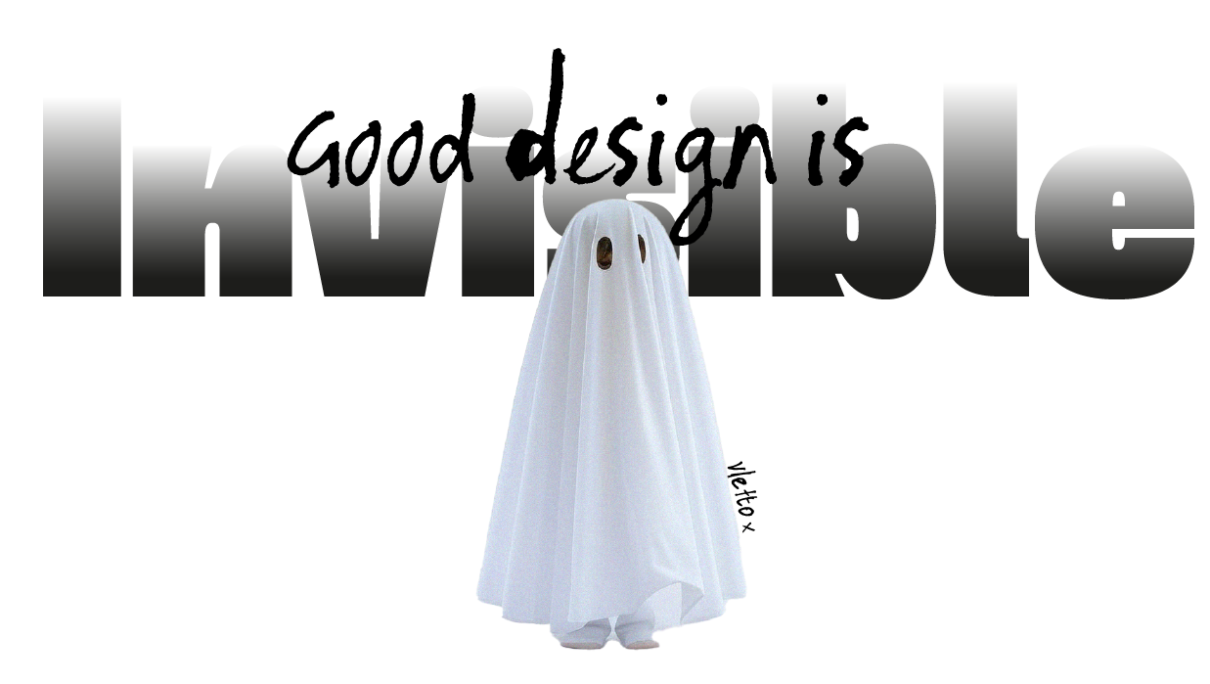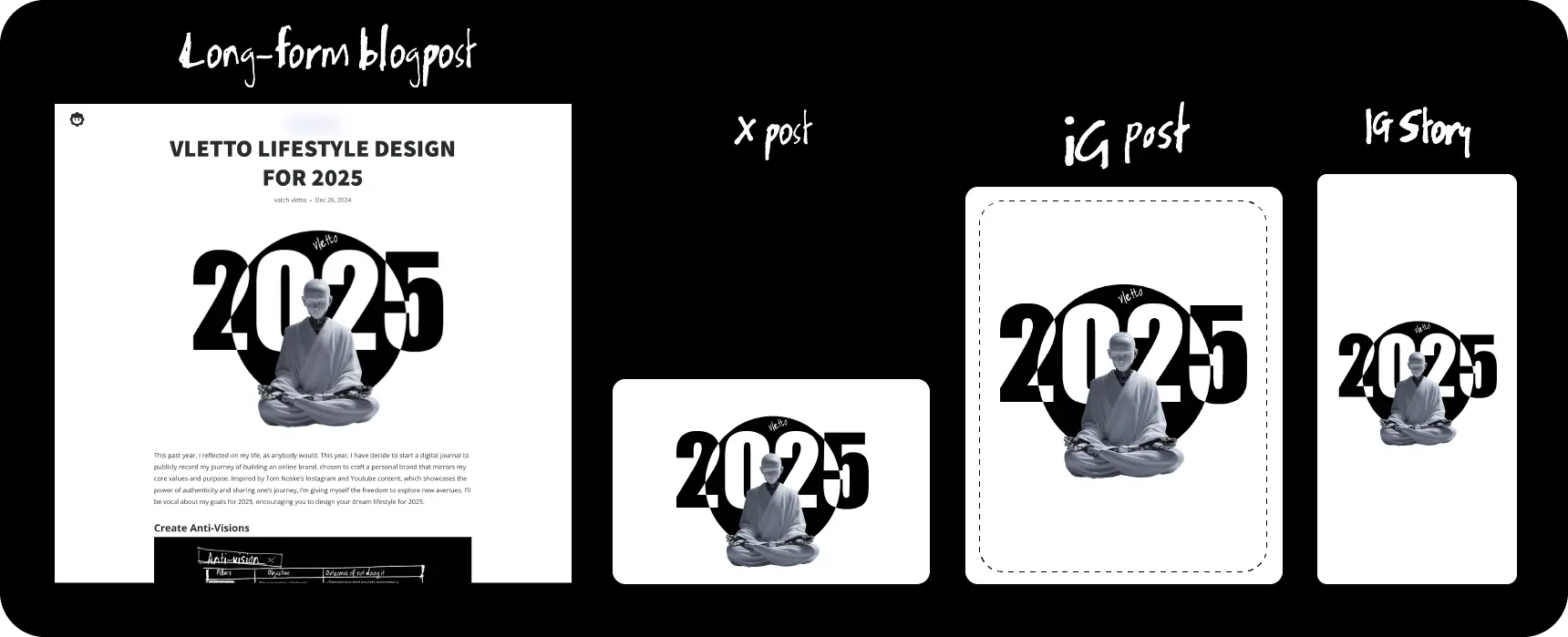
In the competitive landscape of the creator economy, where capturing and retaining audience attention is paramount, the principle of “good design is invisible” holds weight . This philosophy, when applied to content creation and distribution, particularly through a content waterfall strategy, can dramatically enhance how your content reaches and engages clients. Here’s how simplistic design approach can streamline and amplify your content strategy.
“Simplicity is the ultimate sophistication.”
– Leonardo da Vinci.
“Make It Simple, But Significant”
– Don Draper.
Understanding Simple Design
- Clarity: Ensuring the message or content is the star, not the design.
- Ease of Use: Making navigation and interaction with content as straightforward as possible.
- Focus: Directing user attention to what matters most – the brand itself.
How Simple Design Enhances Content
Waterfall Strategy
A content waterfall strategy involves repurposing long-form content into shorter forms and various formats to reach more audiences through posting on multiple social media platforms.
1. Streamlined the Distribution Process
Reduces Cognitive Load: Users can quickly consume content without being distracted by complex design elements, making it easier to move from one piece of the shorter content to the larger piece that it originated from.
Improves Navigation: With fewer elements to distract, users can effortlessly navigate from blog posts to infographics, videos, stories, and carousels, enhancing the flow of your content strategy. A nurturing eco-system to direct profiles to that one big CTA. One message but 100 of different ways to communicate it.
Example: A clean blog layout where text, images, and calls-to-action are presented clearly can guide users to related content or different formats with ease.
The Importance of Side Doors
Yes, side doors matter. I learned this idea from Irene Pereyra’s book ‘The Universal Principles of UX.’ Contrary to common belief, the homepage does not get the most views and is not the most important page of the user experience anymore. Nowadays, with more than half of a website’s visitors first landing somewhere other than the homepage, the user entry points should be easy to understand from first glance. Great way for easily directing in more ideal visitors to your site.
Example: Designing each “side door” with simplicity in mind ensures that regardless of where a user enters your site, they encounter content-focused experience that naturally guides them back up to your content waterfall, which could be the main website with a strong CTA, the source where every piece of content derives from.
Create an image post with the same simple design as the cover (the key for site entry), and a blog article that has the same topic as the post; it is the side door.
Enhancing Content Adaptability
Content in a waterfall strategy needs to be adaptable across platforms and formats.
Facilitates Repurposing: Content designed with simplicity in mind can be more easily adapted into various formats like infographics, social media posts, or podcasts without losing its essence.
Consistency Across Channels: A simple design approach ensures that the core message remains consistent, whether it’s viewed on a desktop, tablet, or mobile device.
Simplicity as a Strategy
Implementing Invisible Design in Your Content Strategy
Content Before Design: Always prioritise the content’s message and value before considering how to present it.
Consistency is Key: Ensure that simplicity is a consistent theme across all your content formats to reinforce your brand’s identity.
Conclusion
Content is king, the simplicity of your design can be the queen that helps distribute that content effectively through a content waterfall strategy. By making your design invisible, or at least unobtrusive, you not only make your content more accessible and engaging but also demonstrate a level of professionalism that resonates with audiences. Remember, the simpler the design, the more your message can flow down the waterfall, reaching and captivating your audience at every turn.






